|
A member of Black4Palestine with Palestinian youth at the Heartbeats to Palestine camp for youth in Lebanon. In August I had the privilege of traveling to Lebanon to represent Black4Palestine while building solidarity by working as a coach at Heartbeats to Palestine, a sports camp for Palestinian youth. My role at the camp was as a basketball coach, which was dominated by the girls, although there were a handful of boys. The camp serves Palestinian youth that live in various refugee camps, those that live outside the camps, as well as several Lebanese and Syrian youth. As a former athlete, the camp was unlike any sports camp or sports event I have attended as it combined sports with political, cultural and self awareness. Each day involved the youth practicing two different sports (basketball, soccer, running, swimming, and volleyball were all offered) as well as an activity on politics, culture and self-awareness. This helped to bridge the goal of the camp with the sports. One of the main goals of the camp is to move beyond the awareness of the Palestinian right to return and build capacity for the actual return. I gave a talk at the camp for one of the cultural sessions. I spoke about the history of Black4Palestine and the projects we had going on at the time. I also spoke broadly about police brutality and the persistent non-indictment of white officers, stop and frisk, the patrolling of Black communities, and the training of several city police departments by the Israeli military. The youth had a number of questions: Are they still killing you? If the police are doing this then why would some Black people become police officers? How can these things happen when your President was Black? It was a fruitful conversation on several levels. Black US America is not accessible outside of mainstream media so this was an opportunity for the youth to see into our world beyond stereotypes and negative images. There were lots of questions about my hair, our communities, and how we handle interactions with the police. This conversation also opened up conversations about how they were experiencing their own situation. I had a few days before and after the camp to see Lebanon. I was able to spend time in, visit, or go to events in Jadra, Saida, Beirut, Tripoli, Brumanna, Bekaa Valley, and Miniyeh (the site of the camp). My ability to attend and see so much was because of the generosity of my hosts. I would like to see this be something we participate in annually while also building this relationship throughout the year. The only thing that would make this trip better is to send more than one person. Please help us make trips like this possible for more people in 2018 by supporting our work.
Two weeks ago the New Orleans city council passed a resolution focused on divesting from companies that “consistently violate human rights, civil rights, or labor rights.” The council is now backtracking and considering rescinding the resolution due to pressure from Zionist organizations because the New Orleans Palestine Solidarity Committee sponsored the resolution. The following is a letter of support submitted to the council: To the New Orleans City Council:
We are members of Black4Palestine, a national network of Black activists committed to incorporating the Palestinian struggle for freedom, peace and justice into our local and global struggles for Black liberation and human emancipation. Like members of the New Orleans Palestine Solidarity Committee, members of Black4Palestine work on a wide array of issues—including war, the criminalization and imprisonment of communities of color, deportation of migrants and refugees, and discrimination in all forms. We are writing to urge you to maintain Resolution No. R-18-5, which creates a process to keep the city’s investments out of civil and human rights abuses. We must be clear that the sole reason for controversy about this resolution and for the council to even reconsider the measure is Israel’s violation of Palestinian rights. Opponents of the resolution fear this would lead to divestment from human rights violations in Palestine. To rescind the resolution because of Palestine is to throw the millions of people who suffer human and civil rights abuses under the bus due to fear of Israel being held accountable for its well-documented and decades-long violations against Palestinians. And it would say that the defense of human rights applies to everyone, except Palestinians—and by extension that Palestinians are not humans deserving of the same rights and protections as others. It would be inconceivable for the council to rescind a resolution committed to upholding civil, human, and labor rights violations on any grounds—as such an action implies that there are rights violations that are okay to invest in. It is not the job of the council to pretend Israel does not violate Palestinian rights, or to cater to groups that seek to justify these violations. It is the job of the council to examine the facts and determine whether any of the city’s investments “consistently violate human rights, civil rights, or labor rights.” Whether it be through the US-manufactured tear gas canisters used against protesters in Ferguson and the West Bank of Palestine, or through the cement company that builds walls in Palestine and is eager to build Trump’s wall along the Mexican border, the struggles of our communities are inseparable. We incorporate Palestine into our daily and ongoing work for human rights at home because in the words of Dr. King: “Injustice anywhere is a threat to justice everywhere. We are caught in an inescapable network of mutuality, tied in a single garment of destiny. Whatever affects one directly, affects all indirectly.” We urge the council to remain committed to protecting the rights of all humans. Signed, Black4Palestine Members of the Dream Defenders’ August 2017 artist’s delegation to Palestine in front of a Palestinian road closed by the Israeli military in Hebron. The following is a reflection a member of Black4Palestine and the Dream Defenders following a June 2017 visit to Palestine. Read this and other reflections in our 2017 year in review newsletter. In May, I traveled to Palestine for an international gathering to develop a shared strategy for fighting the Israeli weapons industry hosted by Stop the Wall and the American Friends Service Committee. The gathering was held during one of Israel’s largest weapons expos. There were representatives from South Africa, Bosnia, Colombia, Brazil, Palestine and the US - all folks fighting the occupation of Palestine and the impact of Israeli arms and weapons on the destruction of their local communities. This experience made it clear that coming together in the face of an industry that makes money off of military occupation, death and destruction across the world is our only fighting chance at liberation. We literally cannot win without each other. Palestine has been at the forefront of building an internationalist resistance movement and has pushed and inspired me to build the Dream Defenders into an organization that is not only internationalist in our rhetoric, but in our strategy and daily organizing practice. I had been to Palestine once before, and each I was overwhelmed with sadness and anger about the state of the occupation and the suffering and exploitation human beings are forced to face at the hands of the state and corporate elite. In the year between my trips, it was hard to imagine that things could get any worse, but they did. It’s overwhelming to see human beings forced to endure so much, including the many lies that are spread about them in order to justify the killing of their children, the destruction of their homes and the stealing of their land and culture. To witness the power of Palestinians to keep fighting and resisting in the face of this inspires me to do more for our people everyday. The plight of Palestine represents both everything that is wrong about humanity and everything that is beautiful and possible about us too. Our trip to Palestine took place four months into Donald Trump’s presidency. While we know that none of this starts or ends with Trump (or Netanyahu), Trump and Netanyahu are at the forefront of building economies that rely on perpetual war and the destruction of the planet. They are perpetuating a culture that presumes people are innately criminal and terrorist, and that war, death, and incarceration are the only solutions to the problems we face. Then, they profit off of this propaganda. The day after Trump was elected, all of the US stocks plunged except for the private prison corporations and the arms/weapons industry. In the US, 8 major donors have contributed over $57 million since 9/11 to anti-Islam think tanks. These propaganda outlets create financial incentive and ideological justification for the “war on terror,” as well as anti-Palestinian sentiments. In the prison industry, even though crime is falling, the two biggest prison corporations in the US take in annual profits of $3.3 billion. This is also due to a well-funded lobbying and propaganda network that capitalizes on racism. These prison companies are connected to the expansion of policing and militarization of communities around the world. G4S, a company that is profiting off of locking up Black people in the US, is also responsible for beating up indigenous protesters at Standing Rock fighting for our collective right to clean water, and is also responsible for detaining, torturing and deporting immigrants. This same company provides services and equipment to Israeli prisons, checkpoints, police and the Apartheid Wall. It is on us to resist the systems this society is rooted in - racism, imperialism, capitalism - and to end use of prisons, weapons, and war in the name of “security” and “peace.” Coming back from Palestine after this experience made me realize we need to build a mass movement against the defense industry, a movement that fights the propaganda spread about our communities to justify the industry’s existence. On a fundamental level, we must help everyday people realize that they should not be scared of one another as human beings and that they must start looking up at the people who are profiting from our fear and suffering. We cannot become complicit in the world they are building. We have a responsibility to envision a new world, and a new way of being in relationship with one another and the land which we stand upon. We must not only unite around the commonality of our oppression, but around a common vision for liberation. When we do this, the vision becomes larger than ending the weapons trade or police killings of Black people, larger than tearing down the wall between the US and Mexico or the wall in Palestinians. Our movement becomes a struggle rooted in a new vision for humanity. Please help us make trips like this possible for more people in 2018 by supporting our work
2017 Reflection: African & Palestinian Solidarity is Key to Ending Zionism and Colonialism1/12/2018
Photo courtesy of Black-Palestinian Solidarity The following is a reflection from Black4Palestine member LiT following a June 2017 visit to Palestine. Read this and other reflections in our 2017 year in review newsletter. When I returned from my first trip to Palestine, I was filled with rage. I saw Palestinians fighting a three layered assault: they are separated (apartheid), dehumanized, and killed (genocide). I saw parallels between Palestine and what I learned Turtle Island (America) looked like in the first 100 years of European colonization. The Zionist’s illegal kidnapping, detainment, torture, and murder of Palestinian people and their extraction and dispossession of land and natural resources parallel the attacks on indigenous people on Turtle Island and the formation of the United States. Connecting my work with indigenous groups on Turtle Island, other African descendants, and anti-colonial struggles across the world, I look back to the Balfour Declaration - Britain’s declaration of support for a Zionist state in Palestine in 1917. The issue of Palestine is not 50 years old, but over 100 years old. So it is not enough to be anti-occupation, we have to be anti-zionist and anti-colonialist. It is not enough to end the occupation, but we must support and secure the right to return for all Palestinian refugees. We must be clear that all of “Israel” is occupied Palestinian land, not just the West Bank and Gaza. During my time in Palestine I formulated grounding principles that frame my definition of liberation:
In spite of intense Zionist violence, Palestine remains beautiful. The morning I left Palestine, two young boys saw me waiting for the bus to Qalandia checkpoint. They asked where I was going and after I told them to the airport, they walked away and returned with flowers offering “something to remember us and our land.” I felt despair when I first got back, but then I realized there’s no time for that - we must get to work. Palestinians and Native Americans share two sides of the same story, via Settler deCOLONIZATION (Facebook) Please help us make trips like this possible for more people in 2018 by supporting our work.
Over the past two years, we've done internal work to build our network, issued statements, spoken at conferences and rallies, and traveled abroad to the Middle East and Africa for solidarity work.
As we move into 2018, we are happy to share our 2017 year in review newsletter below. Inside you'll find an overview of the local and national work we did last year, reflections on trips our members have taken to Lebanon, Palestine, and South Africa, a reprinting of our statements of support for the Freedom & Dignity hunger strike and against the attacks on Jerusalem. We dedicated this issue to Rasmea Odeh, whose tribute you'll find in the center of the document. You will also find our goals for 2018, which include solidifying our national organizing network, hosting regional gatherings across the country, publishing and printing educational resources geared towards Black people about Palestine, and continuing our international solidarity work by visiting the Middle East and Africa and inviting speakers here. Please help make our work possible in 2018 by contributing here. If you have trouble viewing the newsletter below or would like a printable version, click 'Download File':
Black4Palestine 2017 Newsletter by Black4Palestine on Scribd The following are expanded remarks from B4P member K. Bailey at a Detroit-area rally for Jerusalem last week. Black4Palestine joins millions around the world in condemning President Trump’s decision to recognize Jerusalem as the capital of “Israel.” Trump’s decision adds yet another assault to seven decades of Zionist theft of Palestine’s holiest city. It continues the US government's refusal to adhere to its basic positions in East Jerusalem, rooted in international law: opposing Israeli settlements and protecting its sovereignty for a future Palestinian state. We know that Jerusalem is the capital of Palestine, just as we know that all of Jerusalem—East and West—is Palestinian land, and that all of “Israel” is Palestinian land. The division of “East” and “West” Jerusalem is an illegitimate and colonial division. Palestinians of all faiths lived in all of Jerusalem prior to their ethnic cleansing by Zionists in 1948, when Zionists expelled nearly 40,000 Palestinians from their homes and land in “West Jerusalem. ” Today more than 5 million Palestinian refugees still have an inalienable right to return to their homelands in what is currently “Israel.” We say this with an understanding that “Israel” is actually the land of over 400 Palestinian villages that were demolished to build the entire infrastructure of the state. And we say this with an understanding that the “United States” is actually the land of over 560 indigenous nations, for whom Palestine has already happened and whose capitals have all been destroyed. Defenders of Israel point to a fear of Israel “being wiped off the map,” even though it was Zionists who literally wiped Palestine off the map. We reject the Zionist project on Palestinian land, under which the indigenous inhabitants of the land are dominated, subjugated and colonized by Jewish settlers from around the world. Palestinian villages depopulated by Zionists around Jerusalem, "Tel Aviv," and Gaza. Many members of Black4Palestine have been to Palestine and have seen firsthand the violence and discrimination in Jerusalem: we’ve spoken to families in Sheikh Jarrah where Zionist settlers have literally kicked Palestinians out of their homes; we’ve spoken to people who lost their status as Jerusalemites for going to study abroad or marrying someone in the West Bank; we’ve seen the apartheid wall divide parts of Jerusalem from other parts of the city, farmers from their land, and families from seeing each other. We’ve seen the apartheid in the separate roads, buses, and resources between East and West Jerusalem, both apparently “the eternal capital of Israel.” And we’ve seen the day and night contrast between Palestinian villages in Jerusalem and Israeli settlements less than five minutes away. We watch in condemnation as Israel demolishes the homes of Palestinian resisters or families who “illegally” built new rooms or floors onto their apartments. These demolitions are collective punishment and often the result of Israel’s refusal to grant 98 percent of permits for Palestinians to build in Jerusalem, while allowing settlers to colonize more Arab land. The aim of the Zionist project is to own the maximum amount of land in Palestine with the minimum number of Palestinians and minimum Palestinian political power. Israel knows that if Palestinians can organize themselves to rise up, they will have the will, the strength, and the numbers to succeed. This is why they have sought to destroy every instance of their existence and resistance. But the Zionist project will not win. We encourage our family in Palestine to remain steadfast in the face of such violence and to continue their resistance until the liberation of all the land. "The road to Al Quds (Jerusalem)" courtesy of Facebook Further Reading on Jerusalem:
On Thursday, August 17, 2017 the United States government finalized motions to revoke the citizenship of Palestinian-American activist Rasmea Odeh and to deport her from the country. Black4Palestine member Kristian Davis Bailey was in Detroit for the hearing in solidarity with Rasmea. The following is an adapted version of his remarks at the post-hearing rally:
Full support for Ramsea
Black4Palestine offers our unequivocal and unconditional support for Palestinian-American activist and former political prisoner Rasmea Odeh. Black4Palestine understands that as Black people living in the heart of the US empire, we will not be free until the people who are also under the boot of this empire are free. Today that is our comrades and family the Palestinians. The trial against Rasmea has always been political, but Rasmea's Defense Committee rightly understood that Rasmea would not receive a fair trial under the Trump Administration and the state's response to recent white supremacist violence in Charlottesville illustrates exactly why: No justice on stolen land During the hearing, the judge spoke about punishing “intentional and deliberate false statements.” He said that the United States operates around "truthfulness" and requires punishment for "wrongdoing." Yet when has the United States been "truthful" about its colonial nature or punished for the wrongdoings of genocide, land theft and slavery? How clear are the interests of this country and it’s so called “justice system” that white nationalists and neo-Nazis are not being prosecuted, but a 70-year-old community organizer is being targeted and deported by the “Department of Justice”? How clear are the interests of this country that an entire community's water can be poisoned by the state and no one faces any consequences? How clear are the interests of this country that police can murder thousands of individuals and not face any punishment? There has never been any justice for Native, Black or poor people on this land, so these calls for "justice" expose a fundamental hypocrisy: punishment for the people, but never for the state or the violent practices that hold it up. Attacked for her political organizing The judge claimed this was not a political case, but we all know that it was. We understand that Rasmea is part of a long lineage of political activists who have resisted US empire and Israeli colonialism and were targeted by the state. Two years ago, Angela Davis compared Rasmea's case to her own: “I identify with Rasmea because I know that it is through individuals that entire movements are attacked,” she said. “I knew when I was placed on the FBI’s '10 Most Wanted List' that it would have made no sense to put a single person on that list in that way unless the target was much larger.” At that same event, Angela Davis also compared Rasmea's case to Black revolutionary Assata Shakur, who was liberated from prison by her comrades in the 1970s after facing persecution by the state. She has lived in exile in Cuba since her emancipation.
At Rasmea's farewell event in Chicago, which more than 1,200 people attended, Angela Davis also compared Rasema to Trinidadian-American communist activist Claudia Jones, who was deported by the US in 1955 for her political activities.
Steadfast in the face of repression Regardless of her circumstances, Rasmea has been committed to organizing and committed to the people. She gave 10 years of her life in Israel's brutal and illegitimate jails and then spent more than a decade organizing within Palestinian refugee communities across Lebanon, Syria and Jordan. She even organized during her five weeks in a US prison in 2015. She overcame the divide and conquer efforts of the state to label her a "terrorist" and began to bring the other incarcerated women together. For this "wrongdoing," she was placed into solidarity confinement for three weeks. The hundreds and thousands of people who came together for Rasmea didn't have to physically break her out of jail—but we were able to mobilize for her to be released from solitary confinement, and from an 18-month prison sentence. And because of the power of the people, we were able to make sure that Rasmea does not have to spend any more time in jail. Despite being forced into the "choice" of prison or voluntary deportation, Rasmea refused three times to admit "guilt" during her April hearing. And during her sentencing last week, she refused three times to be silenced by the judge as she named all of the violence Zionists have committed against Palestine. In a country as violent and racist as the United States, Rasmea's refusal to bow in the face of the court inspired us as Black people. Rasmea has continued to embody and teach us the Palestinian practice of "sumud" or steadfastness. A model for joint struggle Rasmea has always demonstrated a commitment to joint struggle. Over the last four years she's brought together a powerful coalition of communities across various backgrounds that are united in our struggle for freedom. Because of her, we have a very powerful community that will continue to organize in Chicago, in Detroit, and in communities around the world. And we know Rasmea will continue to organize wherever she goes. And we know she’ll be welcomed wherever she goes. She might visit South Africa where she’ll be welcomed as a freedom fighter by revolutionary songs and chants. She might visit Europe, where hundreds of thousands of Palestinians live in exile as refugees similar to her and she’ll be welcomed as someone who has given her entire life to her people. She might visit the rural Philippines, where she'll be welcomed as a hero of the people and a comrade of struggling and indigenous people worldwide. Wherever she goes Rasmea will be welcomed because she’s part of the people and fights for the people and the people will always have her in our hearts. The people will never abandon the struggle for Rasmea or the struggle for Palestine. Long Live Palestine! Long Live Rasmea Odeh!
Read Rasema's full statement at the US Palestinian Community Network's website: http://uspcn.org/2017/08/18/rasmeas-statement-at-sentencing/.
|
|||||||
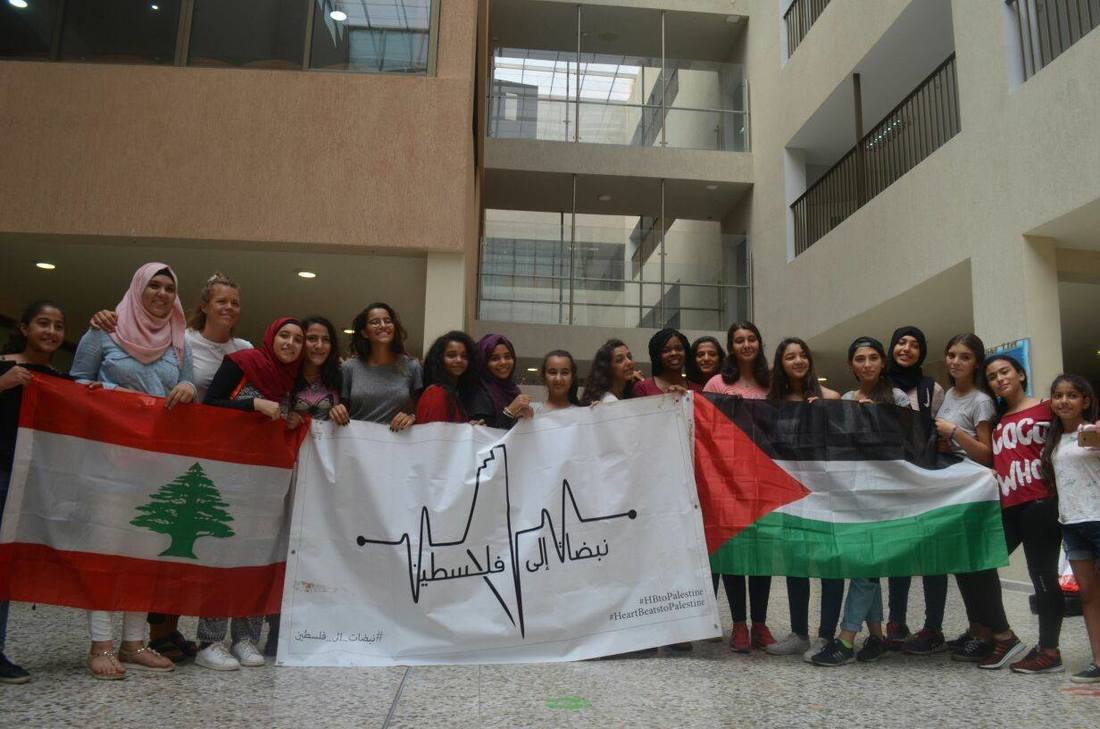
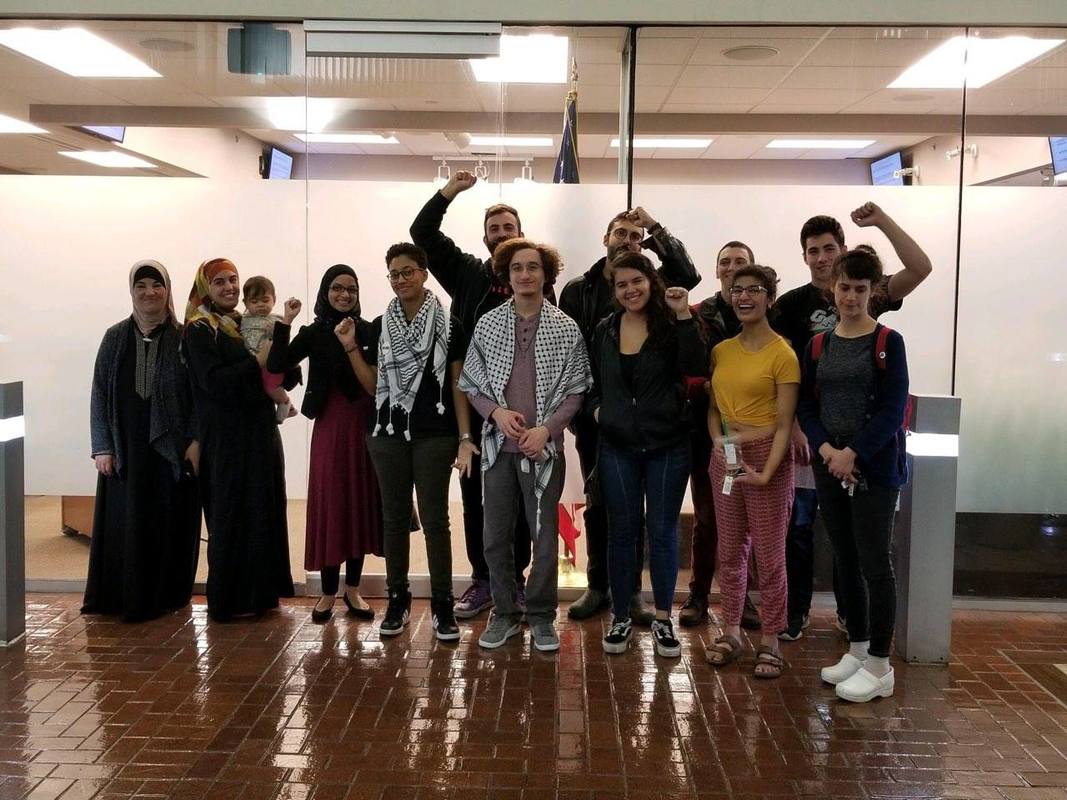
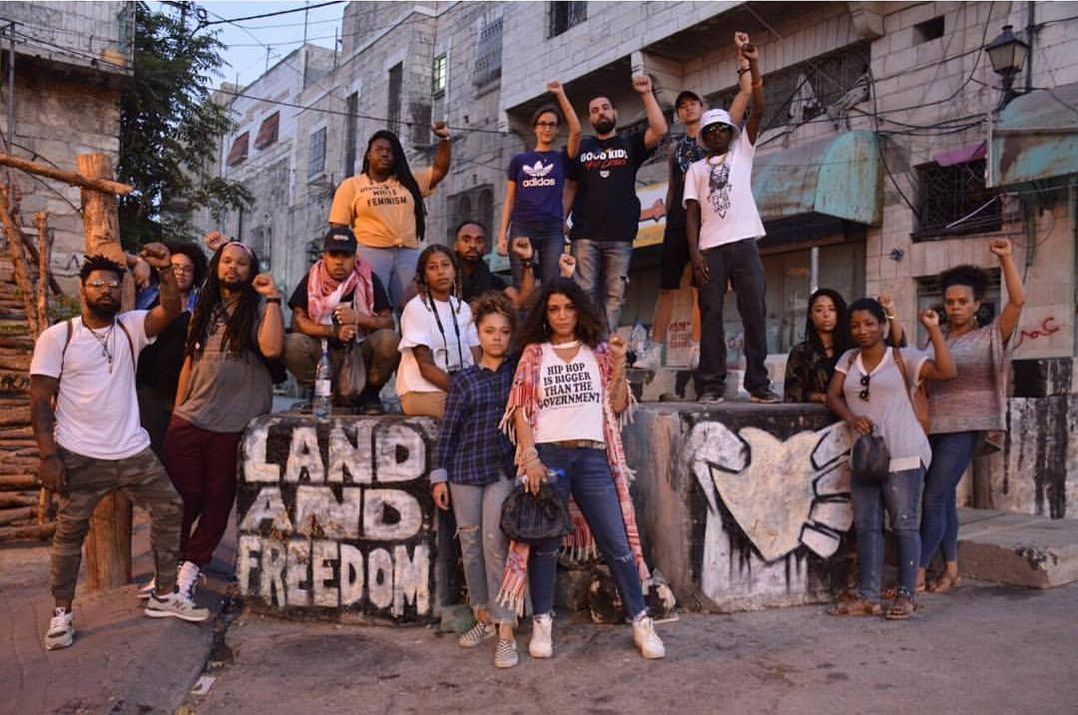
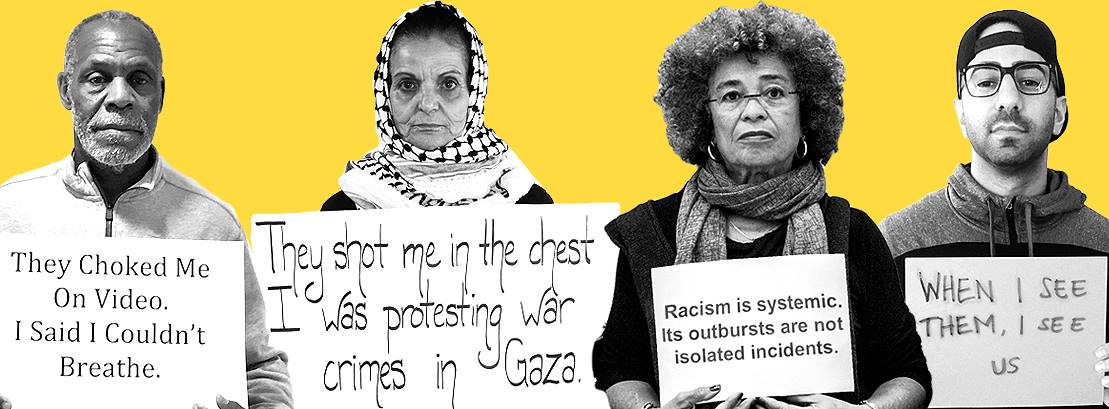
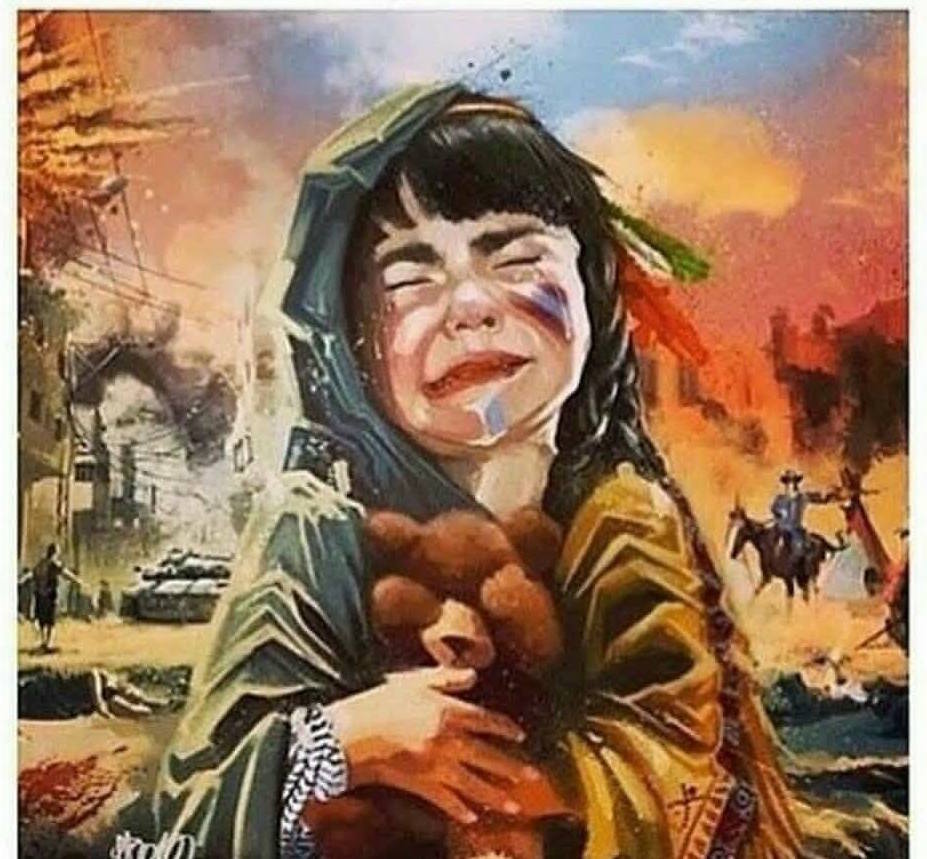
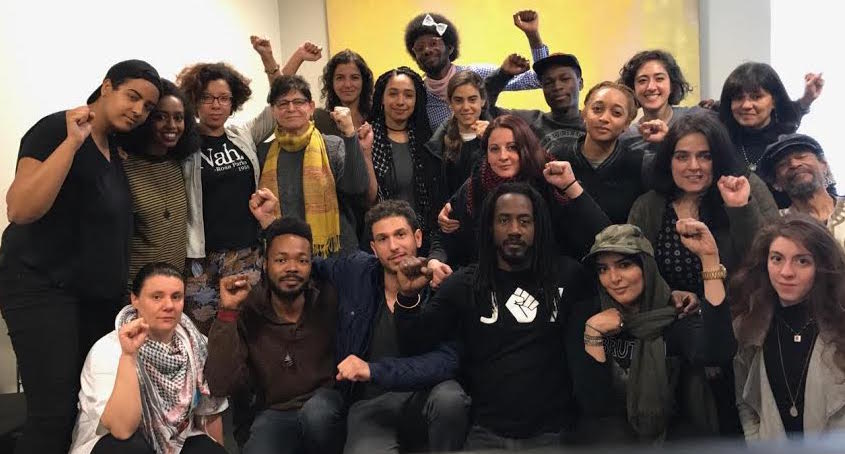
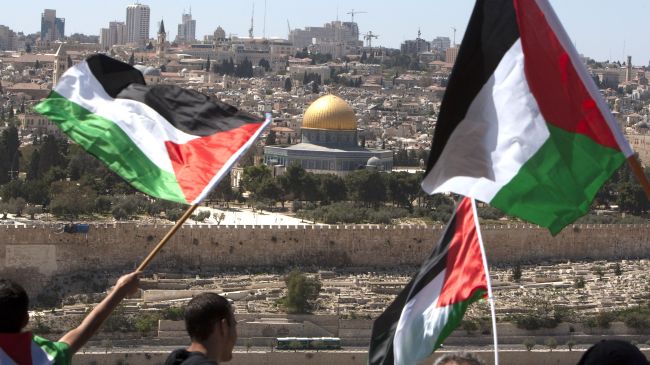
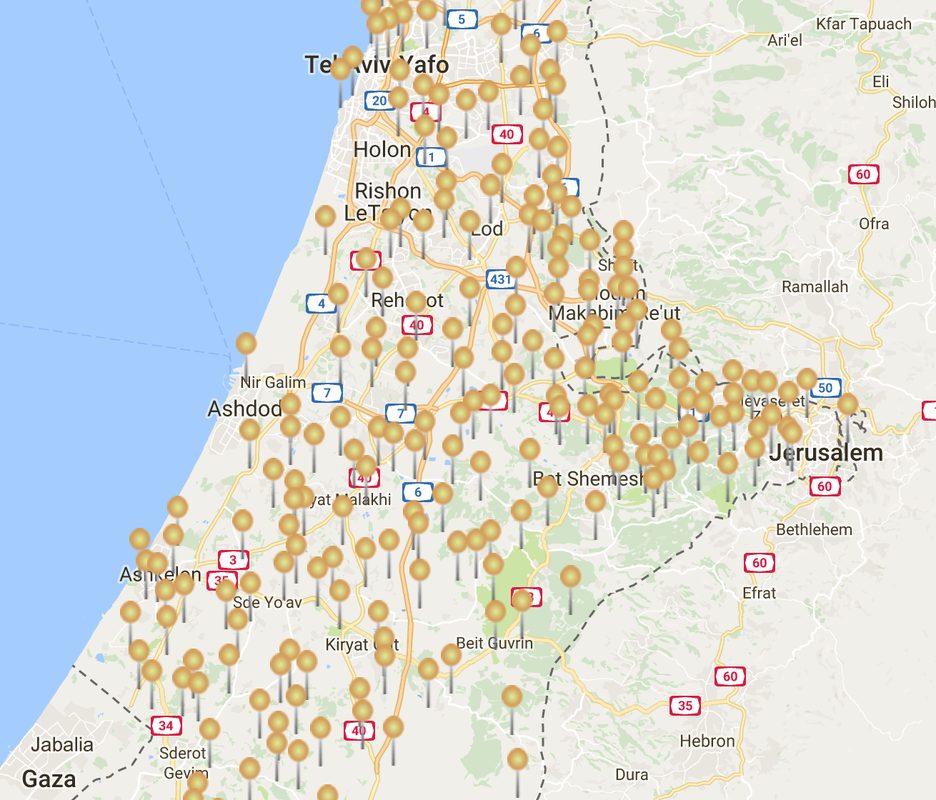
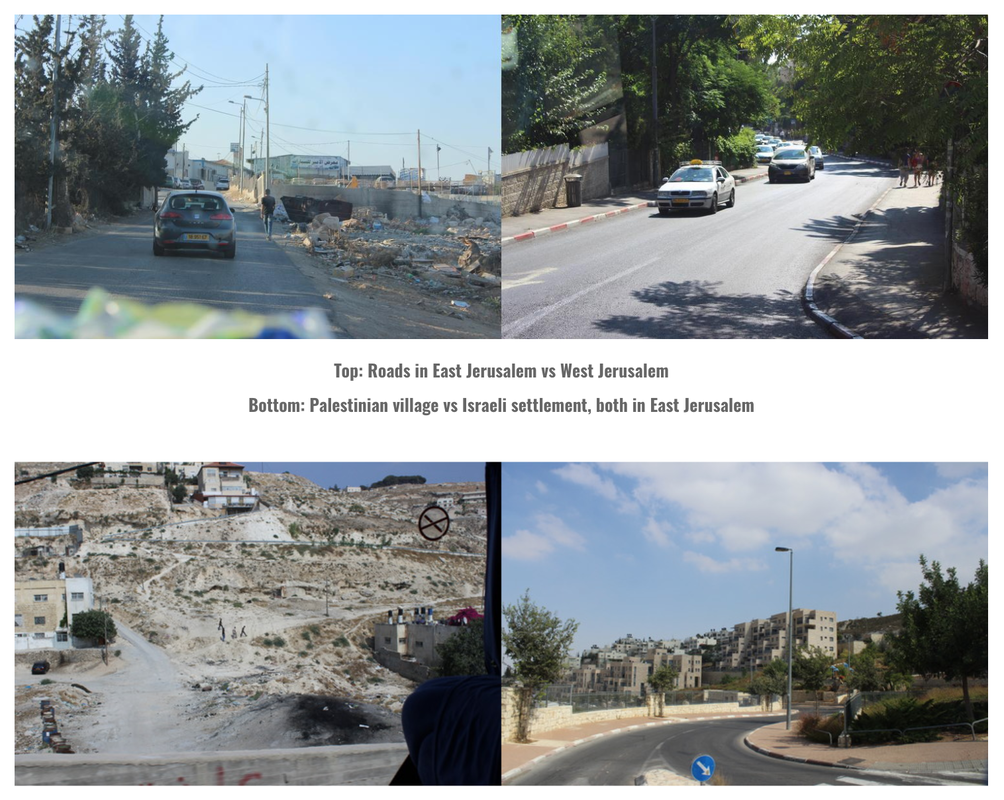
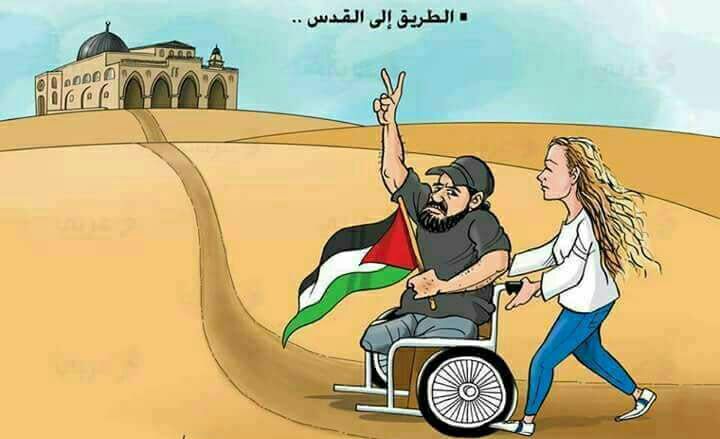
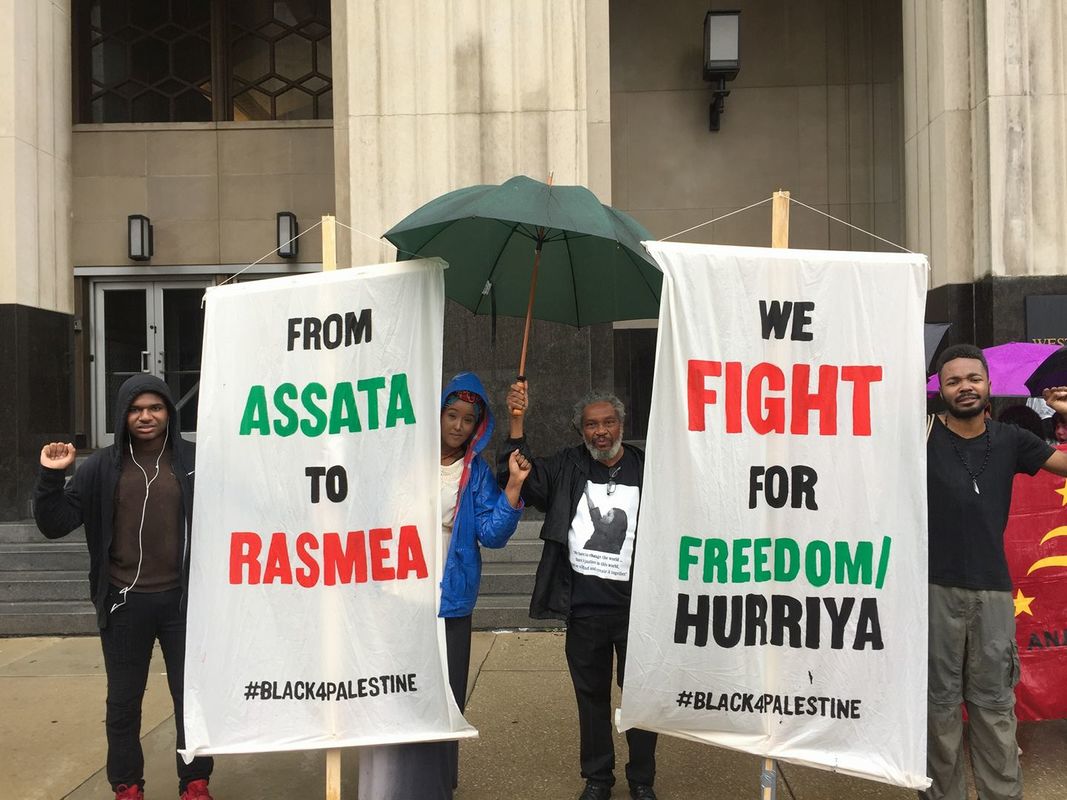
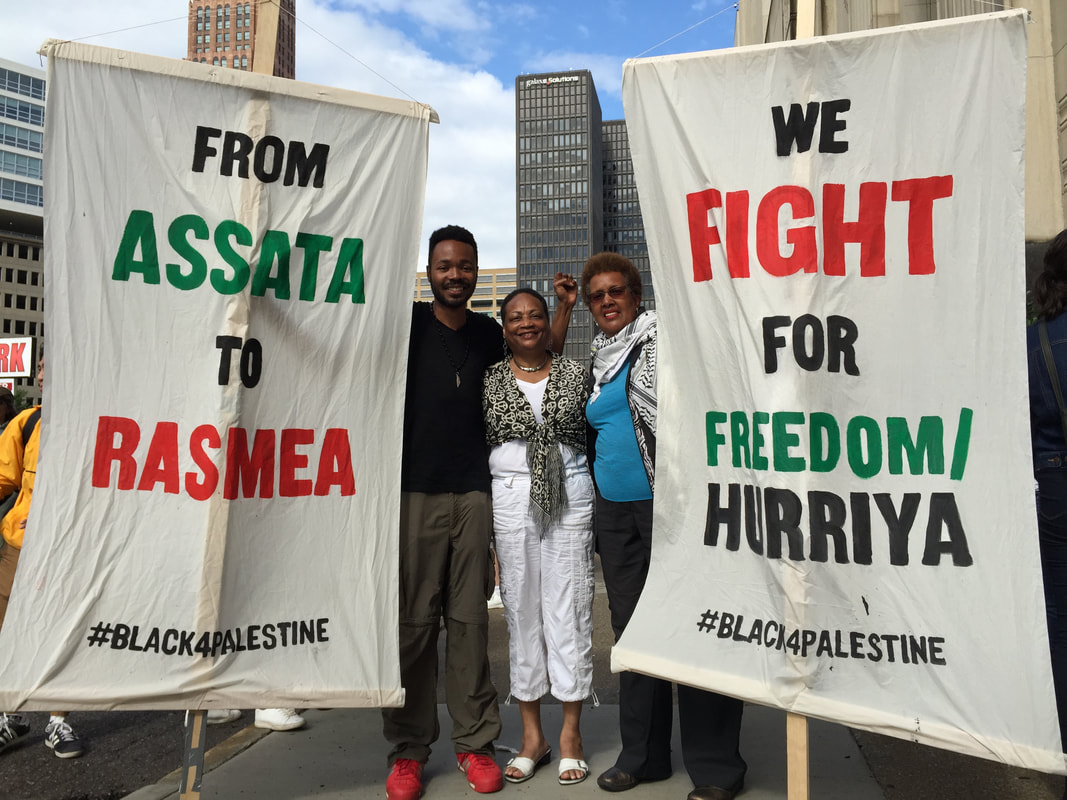
 RSS Feed
RSS Feed